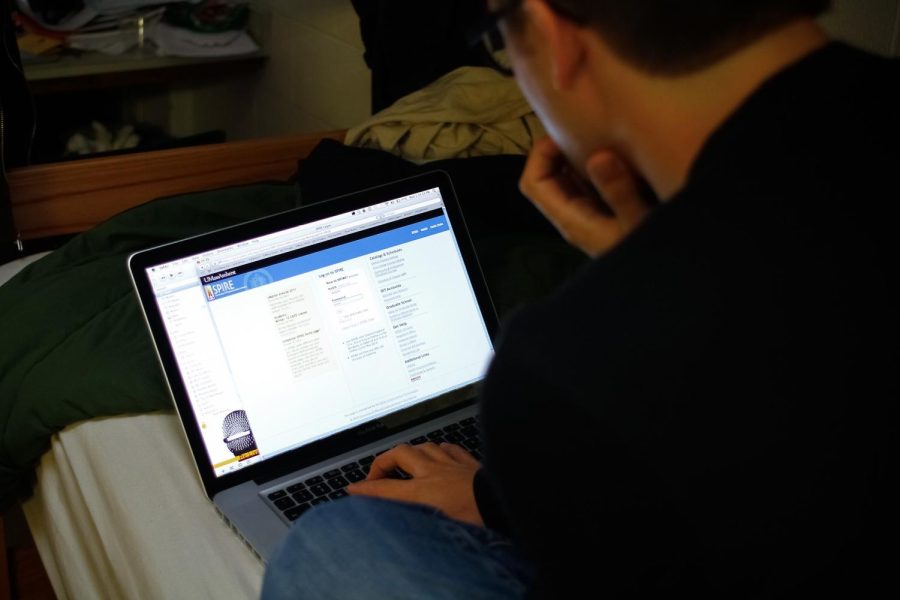As I approach the midway point of my senior spring semester, I, along with many of my peers, face the daunting task of applying to jobs, internships or graduate schools. Employers are looking for students who have internships, co-ops or industry experience already under their belt, balanced with rigorous coursework and, often for science, technology, engineering and math students, laboratory experience.
Most seniors this year, however, only experienced a-year-and-a-half of regular, in-person learning before we were moved online due to the COVID-19 pandemic. Even now, many students still have at least some remote components to one or more of their classes. I’ll admit that remote learning has its perks, and it is undeniably preparing students for the work-from-home status of many companies. However, applying for jobs and graduate schools has brought to light the harsh toll remote learning has on all students, specifically those in STEM-related fields.
The in-person learning component for STEM students is invaluable, and with most seniors graduating with almost two years of virtual learning, I have noticed a gap in our skill level and in our market value to employers. In engineering, specifically, most students throughout their four years will complete multiple classes involving laboratory components. These classes allow students to participate in hands-on work, whether it be in a science lab for a chemistry requirement or in an engineering lab to perform testing and design work.
I can think of countless occasions when professors in my upper-level engineering classes would start a statement with, “When you learned about this in your laboratory component,” and many of my classmates would exchange glances knowing that we did not, in fact, perform that experiment in our partially-remote labs.
These laboratory components are designed to solidify understanding and help students visualize the abstract-seeming concepts taught in their classes, as well as prepare them for the practical skills they may need in an internship or career. Throughout the pandemic, lab classes were allowed to be taught in person, but enormous alterations were made to the classes that made the courses far less effective for students and their retention and understanding of the material.
I had multiple labs in both fall 2020 and spring 2021 canceled for multiple weeks due to various spikes in COVID cases on campus. I also was only able to attend in-person labs once every two weeks instead of every week, as they are traditionally taught. Often, as a substitute for an in-person lab, we were told to watch a video of either our teaching assistant or a random person from YouTube performing similar experiments to what we would have done in person. Then, we were asked to report on either the TA’s data, or other data that we did not take ourselves, and draw conclusions from the data or comment on how it could have been improved.
I can testify that I barely remember most of what occurred in the remote aspects of my laboratory classes and that my reports on these remote components are inaccurate and full of misunderstanding. I understand that schools needed to adapt in-person learning techniques during the worst of the pandemic, and I am glad that laboratory learning seems to have returned to as close to normal as we can expect. I believe, however, that remote learning will continue to affect students, especially STEM students, for many more years due to their lack of hands-on learning experiences in college.
Younger students, such as current sophomores and juniors who have endured the largest percentage of remote college learning, lack core problem solving strategies necessary for STEM students. I have graded assignments for multiple classes and noticed that many students are struggling with simple time management and quitting far too quickly on problems of lower difficulty, simply because they have not had the exposure to true college classes and in-person learning before.
Professors, and the University as a whole, should address this common theme across all majors, but especially those in STEM related fields. Employers are still looking for the most competent individuals, regardless of the pandemic. Remote learning has put STEM students at a disadvantage.
Alanna Joachim can be reached at [email protected].



















